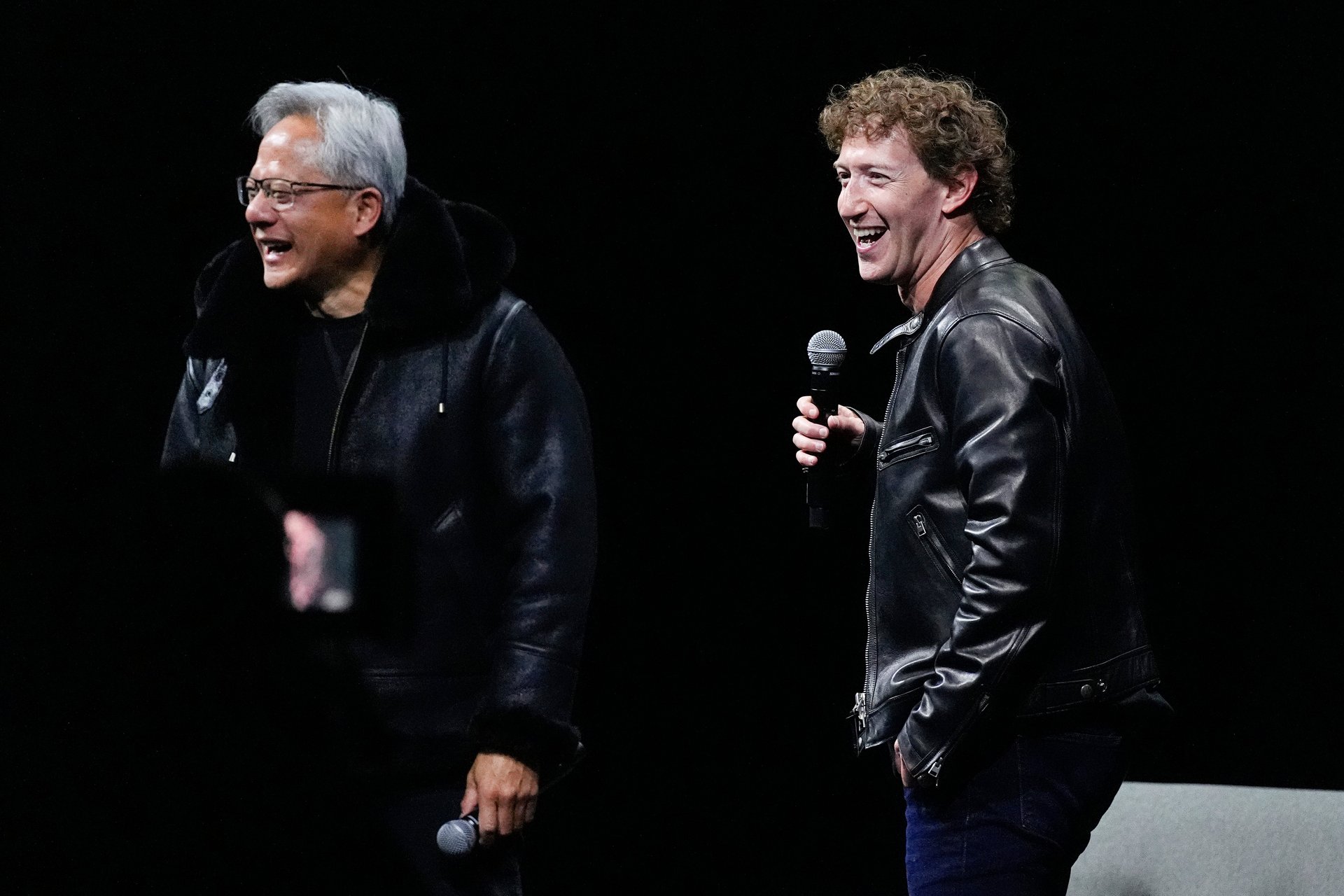Mark Zuckerberg and Jensen Huang see a future where everyone has an AI assistant
The Nvidia chief executive said its Hopper and Blackwell chips wouldn't have been possible without AI assistants

Before swapping leather jackets at their fireside chat, Meta chief executive Mark Zuckerberg and Nvidia chief executive Jensen Huang discussed the future of artificial intelligence — and it’s one where everyone has an AI assistant.
Suggested Reading
Zuckerberg announced the wider roll out of Meta’s new platform, AI Studio, during his discussion with Huang at SIGGRAPH, a computer graphics conference. The platform allows users and creators to create AI characters of themselves that can act as an assistant for different tasks, including interacting with their community. Meta’s vision, Zuckerberg said, is to empower its users, from creators to small businesses, to create agents for themselves.
Related Content
“Every single restaurant, every single website will probably, in the future, have these AIs,” Huang said. Zuckerberg added that, “just like every business has an email address and a website and a social media account, I think, in the future, every business is going to have an AI.”
During a previous fireside chat at the conference, Huang addressed concerns over how AI will impact jobs, saying it’s likely every job, including his, will be changed by the technology, because everyone will have an AI assistant.
Nvidia’s chip designers use AI assistants, Huang said, adding that without AI, the company’s highly sought after Hopper chips, which power some of the world’s leading AI models, wouldn’t have been possible. The chipmaker’s new AI platform, Blackwell, also wouldn’t be possible without AI assistants, he said.
Both tech leaders also discussed the importance of open-source AI, with Zuckerberg saying his “selfish” preference for open-source is due to making sure his company can continue building its technology.
“There have just been too many things I’ve tried to build and told ‘Nah, you can’t really build that’ by the platform provider, that at some level I’m just like, ‘Nah, [expletive] that.’” Zuckerberg said. “For the next generation, we’re going to build all the way down.”
Meta recently released its largest model to date, Llama 3.1 405B, which is open source, and was trained with over 16,000 of Nvidia’s H100 GPUs, or graphics processing units. Huang said he believes Meta has around 600,000 of Nvidia’s GPUs in its data centers.